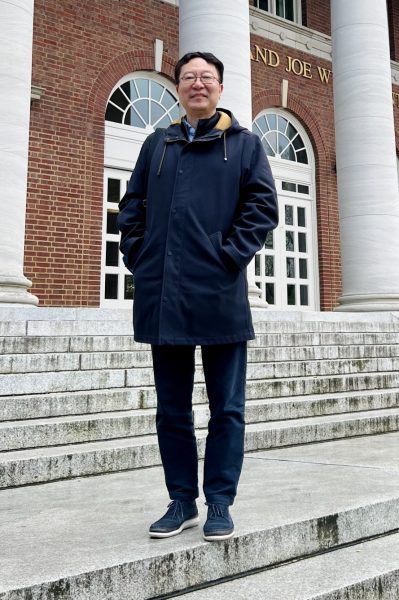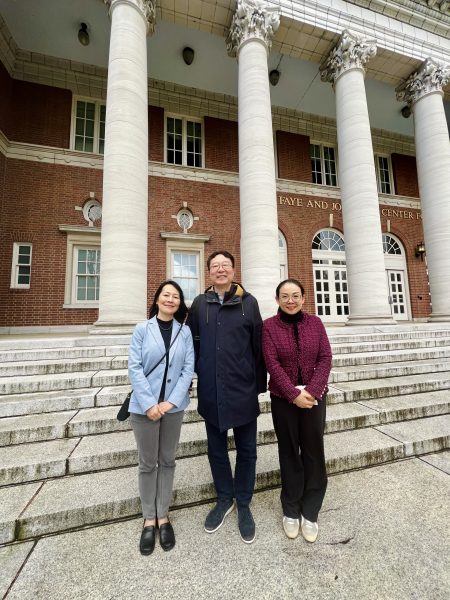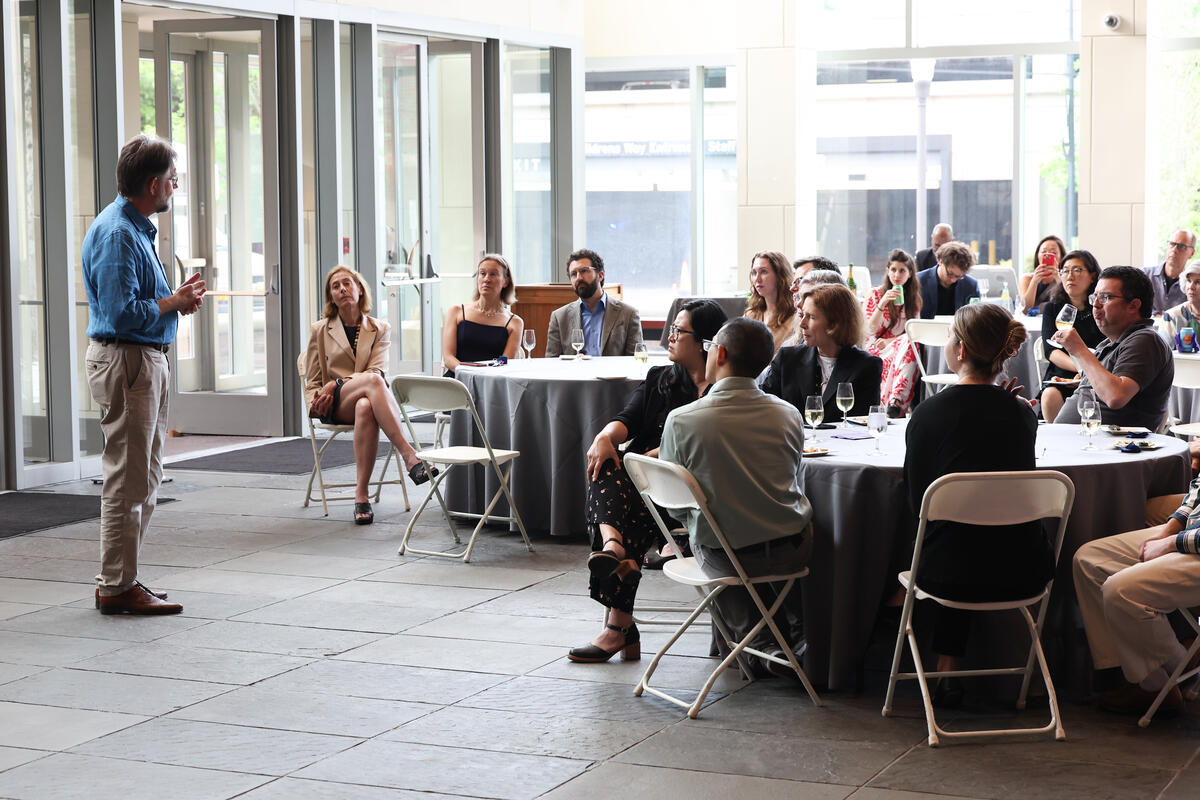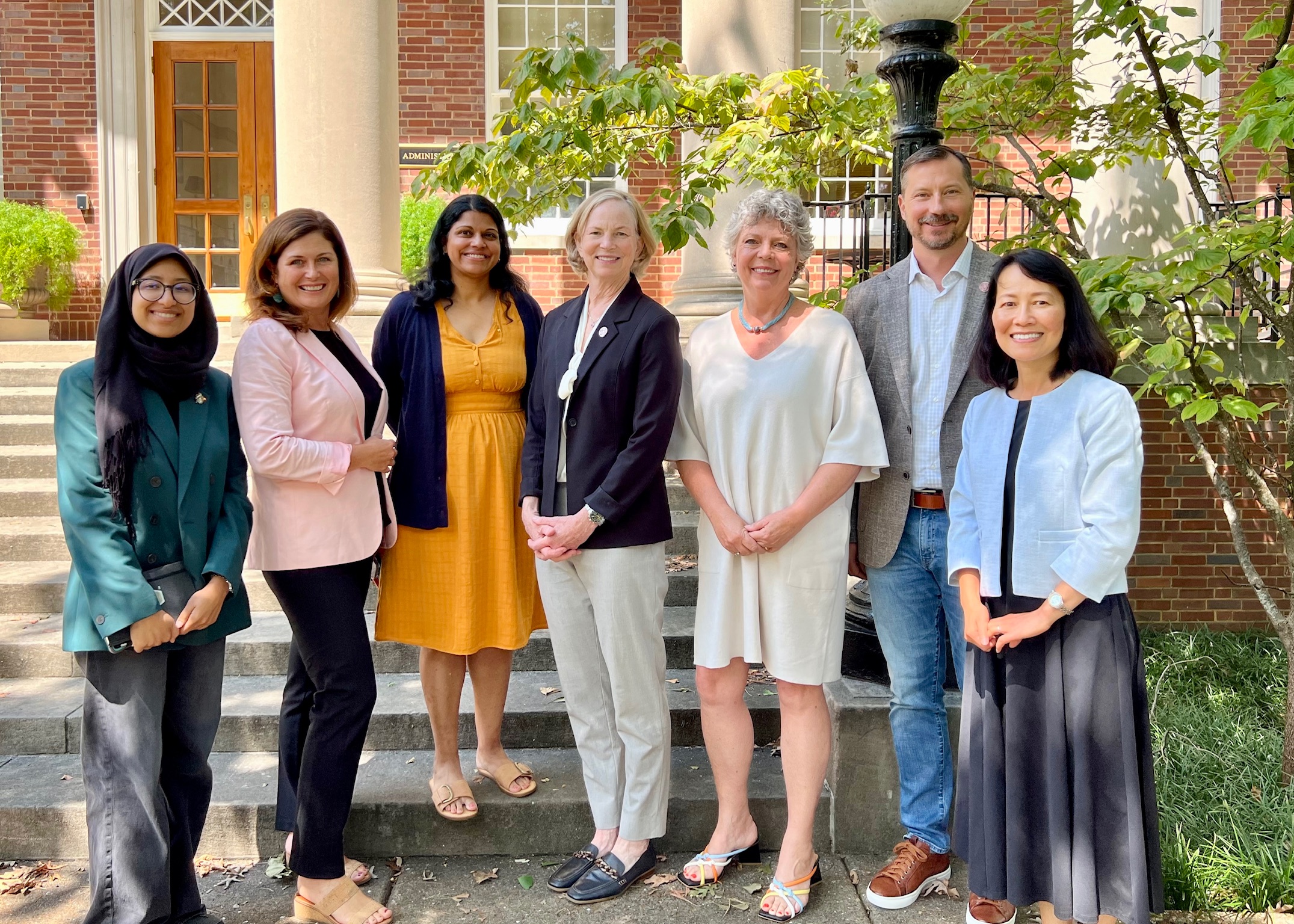By Jenna Somers
Li Wei, professor of applied linguistics and director and dean of the Institute of Education at University College London, visited Vanderbilt Peabody College of education and human development in April as a Global Scholar in Residence.

Li studies bilingualism and multilingualism, focusing on the neuroscience of multilingualism, children’s acquisition of multiple languages simultaneously, cognitive and socio-cultural impacts of learning multiple languages, and the decisions of bi- and multilingual families and communities about which language to use with whom and when. Li is a Fellow of the British Academy, Academia Europaea, Academy of Social Sciences, and the Royal Society of Arts.
During his visit, Li gave a talk on translanguaging, a philosophy of multilingual communication, which, in practice, allows multilinguals to naturally integrate and flexibly use all their languages and other communication resources to develop and convey meaning.
“Multilinguals not only can speak in multiple named languages, but they also navigate variations in tone and style of verbal and non-verbal communication depending on social contexts. When embraced and fully utilized, their wealth of communicative knowledge benefits all learners,” Li said.
Translanguaging originated as an idea to give multilingual learners more agency over their learning and understanding. It has been applied as a pedagogical approach for educating minoritized and racialized bi- and multilingual learners, in analysis of translingual practices and other forms of communication, and as a practical theory of language and communication with multilinguals that capitalizes on their rich language repertoires.
These varied uses of translanguaging have disrupted thinking on how to educate multilingual learners. Li discussed the idea that named languages are socio-political constructs since the neural networks responsible for processing language are the same for all named languages. Through translanguaging, people can transcend boundaries between named languages, as well as races, nations, communities, and more. Rooted in the neuroscience of language processing, translanguaging has catalyzed different understandings on the nature of named languages, bilingual cognition, and communication in multiple named languages. Thus, translanguaging has created more space for all learners to come together and use their full range of communication resources and to challenge educational practices that prioritize learning in one language—often in ways that inhibit the education of minoritized and racialized students.

Huili Hong, professor of the practice of teaching and learning, co-hosted Li’s visit with Noel Enyedy, professor of science education and chair of the Department of Teaching and Learning, and Melanie Hundley, professor of the practice of teaching and learning and associate chair.

In addition to his talk, Li met with Peabody leaders Camilla Benbow, Patricia and Rodes Hart Dean of Education and Human Development; Ellen Goldring, Patricia and Rodes Hart Professor of Education and Leadership and vice dean; and Xiu Cravens, associate dean of international students and affairs and professor of the practice. Together, they explored potential research collaborations between the Institute of Education at UCL and Peabody College. Li also met with additional faculty members and students from the Department of Teaching and Learning and the Department of Leadership, Policy, and Organizations.
Noel Enyedy teaches in the Learning, Teaching and Diversity Ph.D. program and the Learning and Design M.Ed. program.
Huili Hong teaches in the Multilingual Learner Education and Elementary Education M.Ed. programs.
Melanie Hundley teaches in the Secondary Education and Reading Education M.Ed. programs.


